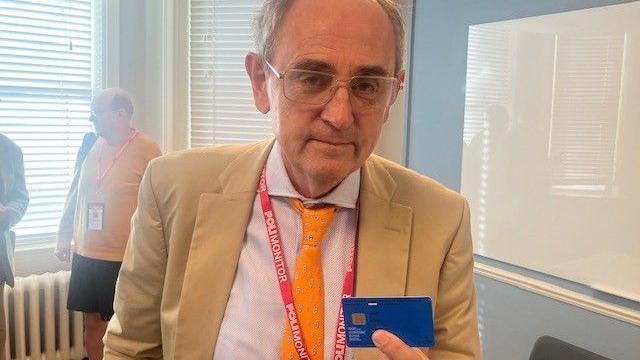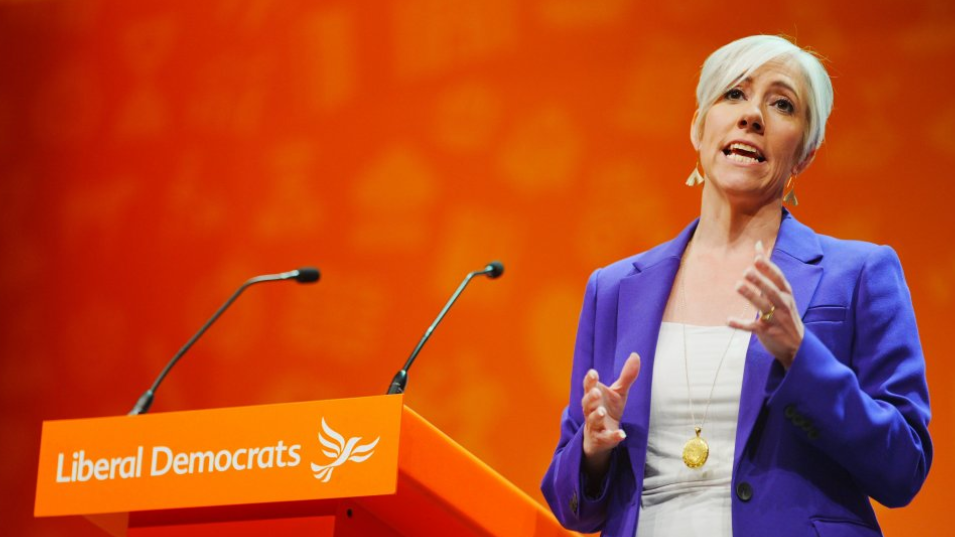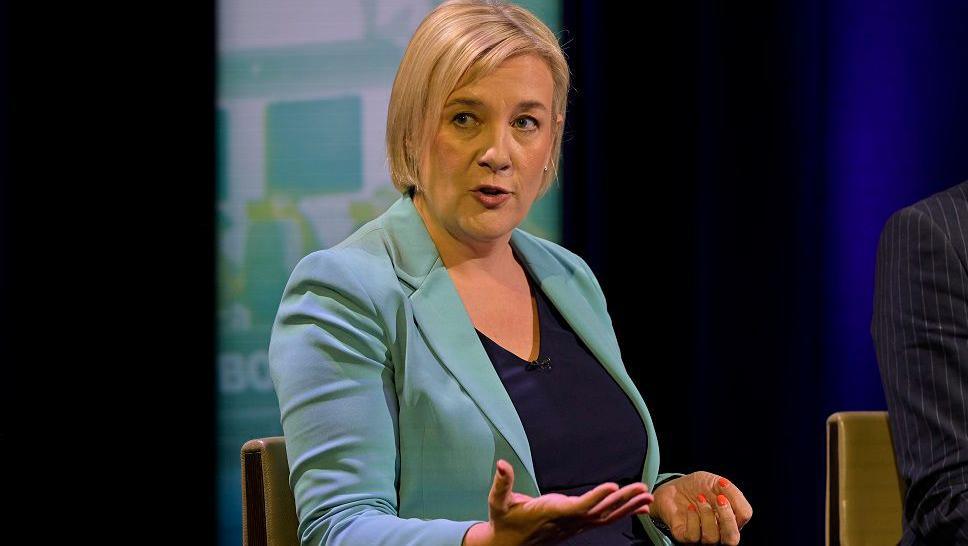Lib Dems consider ditching opposition to ID cards

- Published
The Liberal Democrats are considering ditching their longstanding opposition to ID cards amid reports Sir Keir Starmer is set to push ahead with a digital scheme.
The Lib Dems blocked Labour's first attempt to bring in ID cards when they went into a coalition government with the Conservatives in 2010.
But leader Sir Ed Davey said "times have changed" and the party should look at the issue again and not be "knee-jerk" in its opposition.
He said he had been impressed by a visit to Estonia, where a liberal government had brought in digital ID that he said was "very different" to the scheme proposed by Tony Blair when he was prime minister.
If a UK system was about "giving individuals power to access public services" Sir Ed said he could be in favour because "that could increase people's freedom and rights", but he warned against a model that could be abused by an "authoritarian" government.
Asked for a show of hands, about two-thirds of members in the hall at their conference in Bournemouth backed a debate on changing their position on ID cards.
Lib Dem home affairs spokeswoman Lisa Smart earlier warned members they would be unlikely to get a chance for a formal vote on a change of policy before the government brought in legislation, as it was not scheduled for debate this week.
Earlier this month, Sir Keir told the BBC it could help tackle illegal immigration and press reports suggest he is preparing to make a policy announcement at next week's Labour conference.
On Sunday morning, Smart chaired a packed fringe meeting to test the party's mood on the issue.
The majority of those present argued against digital ID cards, over civil liberties and data security concerns, among other things.
Veteran MP Alistair Carmichael told the meeting: "It seems to me if we are going to go along with the Labour Party on this then we are saying 'we are quite happy to trust the government on this'.
"And I think the day we start saying we trust the government is the day that we stop being a liberal party."
He added: "I think it is ocean-going nonsense to change our mind at that this stage."
Bridget Fox, from Islington in North London, who like many of those present is a veteran of the No2ID campaign 20 years ago, said: "I shouldn't have to prove who I am, going about my own business in the place where I live."
She warned about the impact on "digitally excluded" people, such as the elderly and disabled - and voiced concern about digital ID being abused to intimidate vulnerable and marginalised people.
"I can only too easily see some vigilante patriots stopping people and demanding to see their ID and saying 'I am not carrying it or I don't have it' would no longer be an excuse."
Like others at the meeting, she expressed concern about the "massive" government database that would be needed and the potential impact on the environment.
"This stuff is coming but we should be the constructive critics, we should be the guardians of freedom in this," she told the meeting.
"Just because we can do something doesn't mean we should."

Edward Lucas is Estonia's first e-citizen
Some at the meeting cited Estonia as an example of a country where digital identity has been used to allow citizens to access government and some private services such as medical records, voting and banking.
Labour ministers have also visited the Baltic state to study its identity systems.
Security expert and writer Edward Lucas proudly showed off his Estonian identity card, telling the meeting he was the first person to be issued with one.
Speaking after the meeting, he said: "My experience is that people's scepticism about digital ID tends to evaporate when they go and see it in operation first hand."
He said he understood worries about a "Big Brother system" but argued that digital data "drives democracy and that you can do things with your digital ID that make you safer and freer".
"So on balance I think the case is really strong," he said.
"I think the fact that the party is discussing this after 20 years of visceral opposition to any ID is actually a step forward."
Related topics
- Published21 September

- Published20 September

- Published20 September
